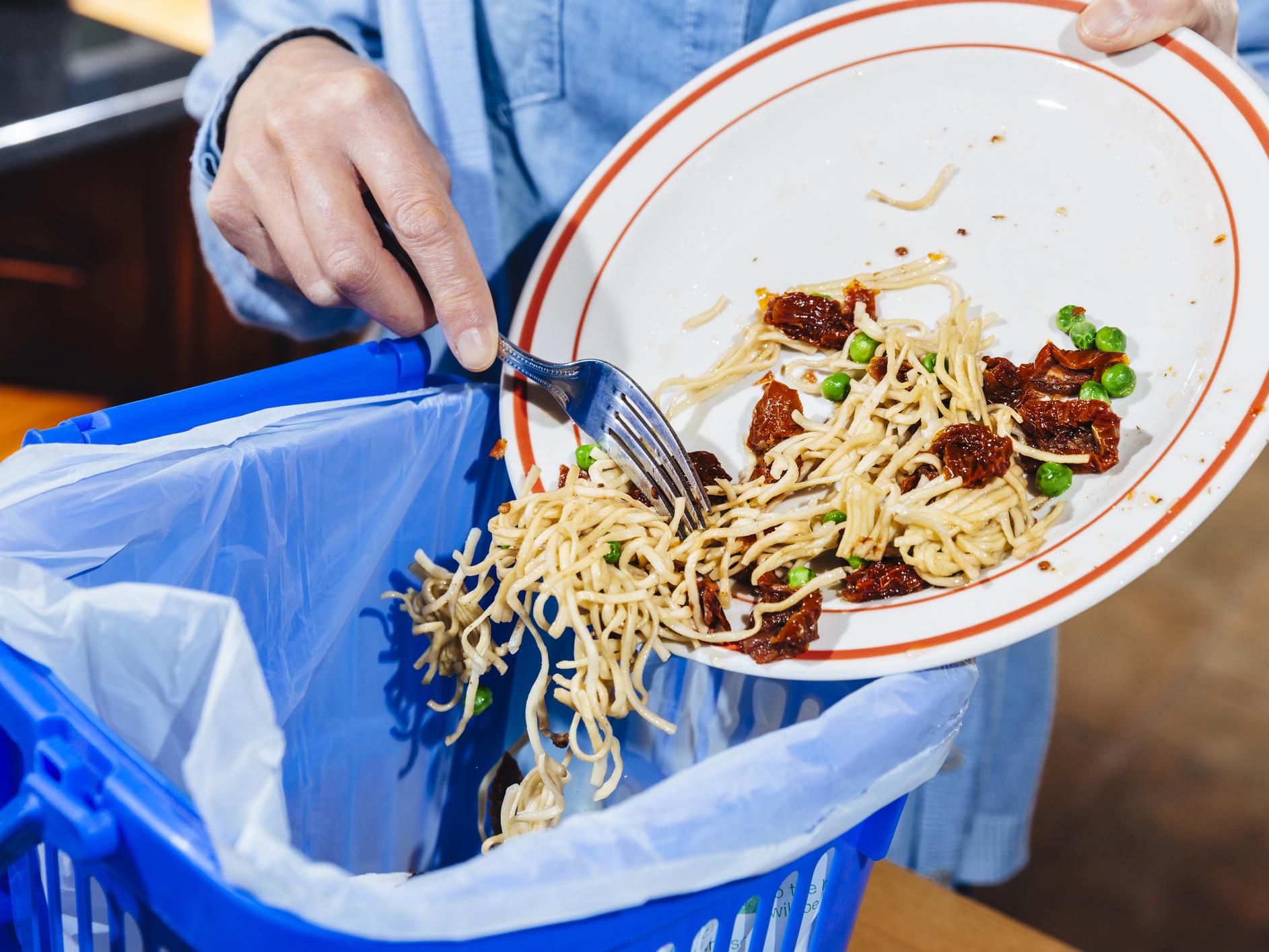Carbon emissions could be halved by avoiding waste from food, clothing and electronics
'This important report challenges us to address the less obvious, but significant opportunities that come from using less and reusing more'

The UK could halve its annual carbon emissions by avoiding waste from products like food, clothing and electronics.
Resource inefficiency is a major source of emissions, and one that has been largely overlooked in the response to climate change.
Fast fashion, wasteful eating habits and our demand for the latest mobile phone or electronic gadget all have roles to play, but so does the waste that occurs on a larger scale and relies on government interventions to address.
To date, UK climate policy has focused on emissions from products being used – for example, measures to reduce pollution from vehicles or heating buildings – and avoided making products and supply chains more efficient.
In a new report, the Centre for Industrial Energy, Materials and Products (CIEMAP) – a collaboration of four UK universities – has found that more careful use of British resources could cut emissions far more than most government climate policies have managed in recent years.
Between now and 2032, they estimated resource efficiency could avoid more than seven times as many emissions as the smart meter rollout, which will see every home equipped with a meter that monitors exact gas and electricity use.
These measures could also prevent nearly three times as many emissions as the Renewable Heat Incentive, which gives cash payments to those who install renewable heat generation equipment.
Resource use, and the associated emissions, can be cut by making product design more efficient and supply chains less wasteful, as well as by reducing demand for new products by making them more durable or encouraging reuse.
These principles can be applied in people’s day-to-day lives. Recommendations from the CIEMAP report include using cars for four more years and not discarding clothes or electronic items if they are suitable for reuse.
As for food, not only does this waste cost the average family £700 every year, avoiding it would bring the UK more than 15 per cent closer to meeting its next emissions target.
However, while there is a role for the individual in reducing waste, the report’s authors also call for policies that will help make the UK more efficient at every level.
“Our research shows that resource efficiency is an effective and unexplored opportunity to bridge the UK’s emissions gap,” said Professor John Barrett, director of CIEMAP.
“Looking beyond energy policies will also be needed if we are to achieve international climate ambitions, such as those set out in the Paris climate agreement.
“This is an important part of the jigsaw if we are to achieve net zero emissions.”
The government is currently considering a “net zero” emissions target for 2050 that would enable it to meet its legally binding carbon emissions targets.
Net zero is the point at which greenhouse gas emissions are balanced by the removal of greenhouse gases from the atmosphere.
To get to this point, experts have said there will be a need to invest in carbon capture and storage technology.

Furthermore, climate advisers at the Committee on Climate Change have recommended around 60 per cent of car and van sales in the UK should be electric by 2030 to meet the government’s legally binding carbon budgets.
“It is always tempting to see new technologies as the way to reduce emissions. It is easy to see the opportunities for both economic growth and emissions reduction from exciting new developments like electric vehicles,” said Baroness Brown of Cambridge, an engineer with an interest in environmental matters.
“But this important report challenges us to address the less obvious, but significant, opportunities that also come from using less and reusing more. And that doesn’t have to mean less economic growth.
“Using materials more efficiently reduces input costs, which will help companies create successful business models around longer lasting products.”
As it stands, the UK is not on track to meet either the fourth or fifth carbon budgets that have been set, but addressing the nation’s waste problem would allow the country to meet the fourth and make substantial progress on the fifth.
Such measures have a precedent. Germany’s Resource Efficiency Programme has a target of doubling resource productivity by 2020, and works with businesses to track resource efficiency and identify areas that need policy intervention.
The new report, published in partnership with the environmental think tank Green Alliance, recommends the UK government adopts the German model.
This would involve forming partnerships with key sectors such as construction – one with the biggest potential for avoiding emissions – and setting specific standards for each one. The government could then intervene with regulations if necessary.
The authors also recommend loans for those seeking to develop resource efficient products, processes and business models.
“The government recently announced that it is considering how the UK can become a net zero carbon economy. We can’t get there if we only target vehicle emissions and leaky homes,” said Libby Peake, senior policy adviser on resources at Green Alliance.
“This analysis shows that reducing resource use is a new and powerful tool for governments wanting to achieve clean growth and net zero emissions.”
In response to the report from CIEMAP and Green Alliance, a government spokesperson said: “The UK is a world leader in tackling climate change – since 1990 we have reduced emissions by more than 40 per cent while growing the economy by over two thirds – and last year we published our Clean Growth Strategy – an ambitious strategy to cut emissions while keeping costs down for consumers, creating good jobs and growing the economy.”
Join our commenting forum
Join thought-provoking conversations, follow other Independent readers and see their replies
Comments
Bookmark popover
Removed from bookmarks